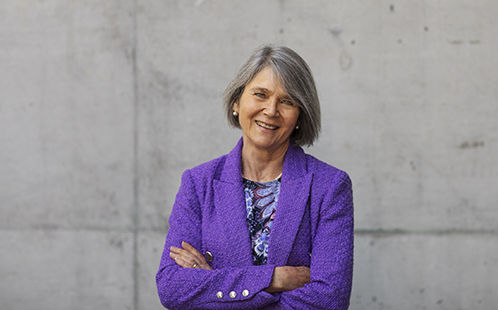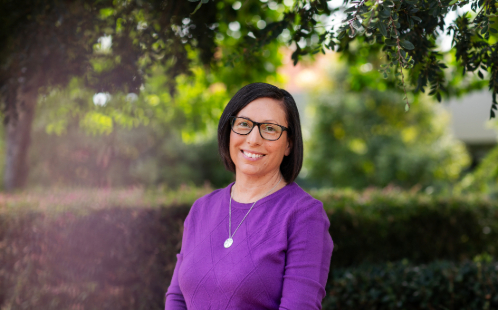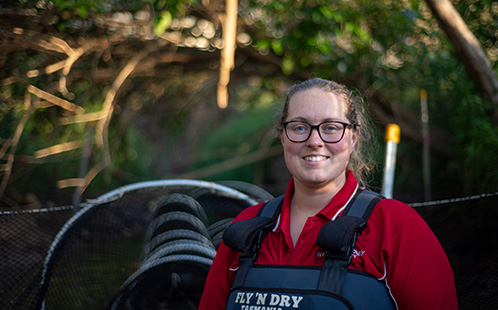Amplifying women’s voices in science: Professor Graciela Metternicht’s journey and advice for the future

To mark International Day of Women and Girls in Science, Professor Graciela Metternicht, Dean of the School of Science at Western Sydney University, shares her journey, insights, and advice for the next generation of women in STEM.
With a career spanning academia, international environmental policy, and applied research, Professor Metternicht has dedicated her life to bridging the gap between science and real-world decision-making. She has over two decades of experience in applied research, training and as an adviser on environmental management.
Professor Metternicht’s motivation for pursuing a career in science comes from a deep curiosity about the world around us and a desire to use scientific knowledge to address important environmental challenges.
“Witnessing the real-world effects of scientific research — including technologies like Earth Observation — for managing land responsibly and protecting nature keeps fuelling my passion for this work,” she adds.
A pivotal moment in her career came when she transitioned from academia to an international leadership role, becoming Regional Coordinator for Early Warning and Assessment at UNEP for Latin America and the Caribbean (2008-2012).
“This experience was a major shift for me, moving from the academic world to a position where I could make a difference on an international level. It helped me understand the challenges of turning scientific knowledge into effective policies.”
Another defining milestone was her contribution to creating a scientific framework for Land Degradation Neutrality (LDN). Now adopted by more than 130 countries as part of the United Nations’ Sustainable Development Goals (SDGs), this framework has been instrumental in shaping international strategies for sustainable land management.
The power of women’s voices in STEM
This year’s International Day of Women and Girls in Science is themed ‘Unpacking STEM Careers: Her Voice in Science’, emphasising the importance of amplifying women’s perspectives in science, technology, engineering, and mathematics (STEM). Professor Metternicht strongly believes that science benefits from diverse perspectives and that it is vital to listen to women in STEM fields.
“When women share their views and lived experiences, they add valuable insights that can lead to new and creative solutions for the challenges we face in the world. By ensuring women’s voices are heard, we can create a fairer and more balanced future in science. This not only helps improve research and policies but also inspires and guides the next generation of scientists.”
Breaking barriers and driving change
Despite progress, women in STEM continue to face barriers, including gender biases, underrepresentation in leadership roles, and challenges balancing work and personal life. Institutions, she stresses, must take an active role in addressing these issues.
“It’s important for institutions like Western Sydney University and others to address these barriers. This can be done through initiatives such as mentorship programs, supportive policies like flexible work hours, and ensuring equal opportunities for research funding and career advancement. Western Sydney University has fantastic schemes for early-career researchers and for women returning to science after career interruptions due to caregiving responsibilities. It is essential that these programs continue to be funded.”
She also highlights the importance of recognising and celebrating women’s achievements in all areas of STEM—from teaching and research to mentorship and leadership.
Advice for the next generation of women in STEM
For students and early-career researchers, Professor Metternicht offers practical advice on mentorship, resilience, and career growth:
“Find mentors and build strong networks, as collaboration is increasingly important in science; never hesitate to bring your perspectives and expertise to the table. Science needs diverse voices and different types of knowledge.”
“Stay determined and passionate about your work. Challenges will come your way, but staying motivated and resilient will bring success and help you bounce back from setbacks, which are valuable for personal growth. Persistence combined with collaboration can drive meaningful impact!”
“Also, keep your focus. The most successful women in science I’ve encountered are those who take the time to reflect on their current position and where they want to go next. While you don’t need a detailed career plan, having a sense of direction (your own internal compass) can help you figure out what really matters for your growth as both a professional and a person.”
“Lastly, my advice is to have fun while you're on your career journey! In our jobs, there are parts we really enjoy, and there are other tasks we ‘have to’ do. The key is to find a good balance between having fun and enjoying the process. Think of life like a science experiment—sometimes things go right the first time, but other times it takes a few tries and some adjustments to get the results we want.”
International Day of Women and Girls in Science

Western Sydney University met me where I was at from day one - Female in Science reflects on university
Carmel Matheson’s journey to university began when she took time away from her 20-year banking career to be her mother’s full-time carer following a terminal diagnosis.

Amplifying women’s voices in science: Professor Graciela Metternicht’s journey and advice for the future
To mark International Day of Women and Girls in Science, Professor Graciela Metternicht, Dean, School of Science, shares her journey, insights, and advice for the next generation of women in STEM.

Where science and nature meet: Katherine Warwick’s quest to save the Platypus
Western Sydney University PhD candidate Katherine Warrick started her love of all things science and animals as an undergraduate student studying a Bachelor of Science (Zoology) at the Hawkesbury campus.
Mobile options:

